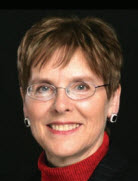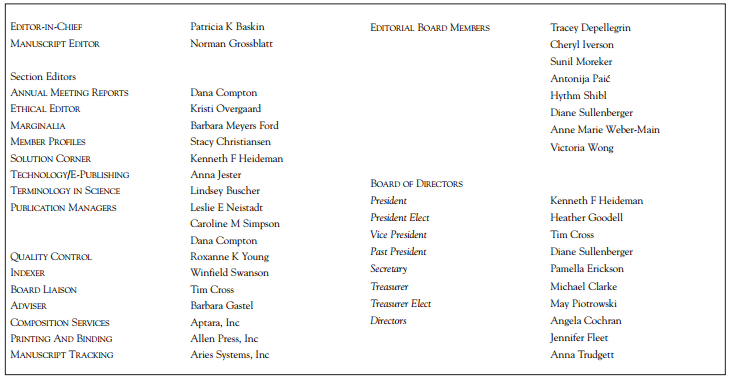
Editor-in-Chief, Science Editor
The recently completed Finch report and the mandate from the Research Councils UK (RCUK) requiring published papers that it has funded be made publicly available were the provocation behind choosing open access (OA) as the topic of the current issue of Science Editor. The mandate is effective for articles submitted to journals beginning 1 April 2013, so I expect expanding access to scientific publications will generate a good deal of conversation this spring. It seems that new OA journals are being launched daily by both new and traditional publishers. This issue’s lead-off article by Morna Conway defines the various models of OA today, and David Crotty describes the status of the intiatives under way in the UK.
The perspectives on OA provided in this issue include those from a member of the traditional publishing community (Joyce Rachel-John, of BMJ) and from PLOS, 10 years strong and instrumental in creating the momentum behind OA publishing (see article by Kristin Ratan). Will Schweitzer and Charles Choe define the challenges and opportunities for SAGE Publications in OA publishing in the humanities and social sciences, as does Dan Kulp for the field of physics. Two examples of forays into OA publishing by societies are presented by Tracey Depelegrin, of the Genetics Society of America, and Heather Goodell, of the American Heart Association.
To round out the OA discussions, Jeffrey Beall discusses the publishing effects of predatory publishers (those taking advantage of funder fees to profit from publishing low-quality, often non–peer-reviewed articles), and Richard Schneider discusses the implementation of OA by the University of California, San Francisco and other institutions. Finally, we present a member profile of a passionate OA advocate, Jocalyn Clark, of PLOS Medicine.
We also bring you the final reports from the 2012 meetings held in Seattle. And, as our cover suggests, the 2013 CSE annual meeting, to be held in Montreal, is rapidly approaching. Articles by Nancy Devaux, coordinator of the CSE short courses, and Michael Friedman and Tony Alves, CSE Program Committee cochairs, describe the short courses to be held on 3–4 May and the general sessions to be held on 5–6 May. Don’t forget to register!

